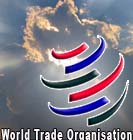Ukraine's Yushchenko vetoes tariff bill for WTO violations
 Kiev - Ukrainian President Viktor Yushchenko on Friday vetoed a major bill on import and export duties, charging parliament was attempting to evade World Trade Organization (WTO) rules.
Kiev - Ukrainian President Viktor Yushchenko on Friday vetoed a major bill on import and export duties, charging parliament was attempting to evade World Trade Organization (WTO) rules.
Much of the tariff regulation changes supported by the pro-West wing of Ukraine's parliament were in line with WTO restrictions, but loopholes and pork barrel clauses in the suggested law made a Presidential veto inevitable, Yushchenko said.
"I am returning this bill for further consideration... because of its gross violation of international agreements entered into by Ukraine... in the (proposed) legislation," Yushchenko said, according to a statement made public by his office.
Ukraine became an working member of the WTO on June 16, but a key condition of Ukrainian acceptance into the customs union was substantial changes to Ukrainian import/export law, per a set timetable.
The legislation as passed by parliament violated the timetable by delaying reduction in tariff protections to a host of Ukrainian manufactures from right away as mandated by the WTO, to an excise tax reduction effective only at the beginning of 2009, he said.
"This is... totally unacceptable," Yushchenko said in comments reported by the Interfax news agency.
Ukrainian manufacturers of most meats, alcoholic and non-alcoholic beverages, chocolate-based products, and automobiles had lobbied for the delays, citing the danger of foreign competition to their businesses.
Ukraine currently is experiencing Europe's highest inflation rate, with price growth running at an estimated 30 - 35 per cent annual rate.
The Yushchenko administration had placed high hopes on WTO entrance damping down price hikes in domestic markets, but has met resistance from industrialists and food manufacturers alike, who have argued WTO compliance is dangerous to the Ukrainian economy and their corporate profits.
A pro-West coalition led by Yushchenko last week lost its ruling majority in parliament, making passage of legislation only possible with the cooperation of the opposition, which supports protective tariffs. (dpa)